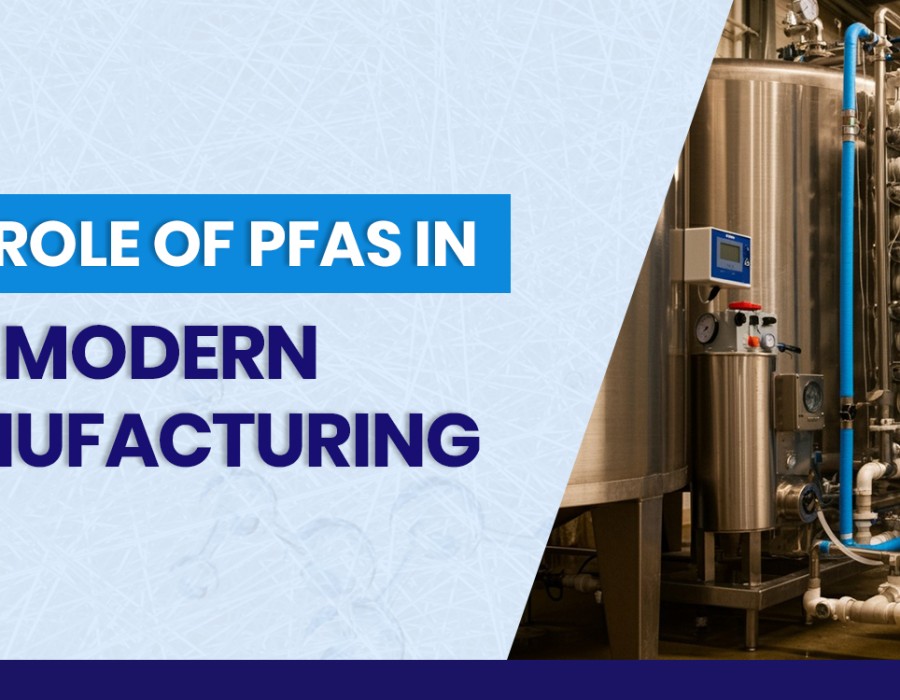In the evolving landscape of advanced materials and manufacturing, few substances have had as significant and complex a role as PFAS per- and polyfluoroalkyl substances. These synthetic chemicals, often referred to as “forever chemicals” due to their resistance to degradation, are found in countless industrial and consumer products. At Matregenix, where innovation meets responsibility, we recognize the dual nature of PFAS in modern manufacturing: their unique benefits and the growing concerns around their environmental and health impacts.
What Are PFAS?
PFAS represent a large group of man-made chemicals developed in the mid-20th century for their exceptional resistance to heat, water, oil, and chemical reactions. These properties made them indispensable in a wide range of applications from non-stick cookware and water-resistant fabrics to aerospace and electronics manufacturing.
In industrial settings, PFAS are valued for their ability to enhance product durability, thermal stability, and surface resistance. In many ways, they have enabled advances in high-performance materials that traditional compounds simply couldn't match.
PFAS in Modern Manufacturing
PFAS are utilized in multiple sectors, playing a key role in:
- Electronics: Used in semiconductors, circuit boards, and insulation materials due to their dielectric properties and thermal resistance.
- Textiles and Apparel: PFAS provide water, stain, and oil resistance to fabrics, making them ideal for outdoor gear, medical textiles, and uniforms.
- Automotive and Aerospace: They enhance the performance of lubricants, hydraulic fluids, and coatings that must withstand extreme conditions.
- Chemical Processing and Industrial Equipment: PFAS-based materials are used in gaskets, seals, and linings to prevent corrosion and improve durability.
The PFAS Dilemma
Despite their industrial benefits, PFAS are under intense scrutiny due to their persistence in the environment and potential health risks. They do not break down easily, accumulating in soil, water, and even human bodies over time. Studies have linked prolonged exposure to certain PFAS to adverse health effects such as liver damage, developmental issues, and increased cancer risk.
This has led to regulatory actions in the U.S., Europe, and beyond, with many governments calling for the restriction or elimination of certain PFAS from commercial use. Manufacturers are now challenged to find alternatives that maintain performance without the long-term environmental impact.
Matregenix's Approach to Innovation and Responsibility
At Matregenix, we believe that modern manufacturing must evolve with a commitment to both innovation and sustainability. Our focus on nanofiber technology and advanced material solutions includes a deep understanding of PFAS and their role in product performance. We are actively exploring PFAS-free alternatives and sustainable material designs that do not compromise functionality.
Our R&D teams are continuously evaluating how PFAS interact with nanofibers, filtration media, and biomedical materials. We aim to stay ahead of regulatory trends and contribute to cleaner, safer technologies for industries such as healthcare, environmental filtration, and technical textiles.
Toward a Sustainable Future
The role of PFAS in modern manufacturing is undeniable they have enabled many of the conveniences and advancements we take for granted today. However, as awareness grows around their environmental persistence and toxicity, the industry must pivot toward safer, more sustainable practices.
Matregenix is committed to being part of this transformation. Whether through material substitution, design innovation, or collaboration with environmental scientists and regulators, we strive to lead with responsibility. By combining high-performance materials with eco-conscious engineering, we are helping to shape a future where innovation does not come at the expense of public health or the planet.
Conclusion
PFAS have played a central role in modern manufacturing for decades, contributing to the durability and reliability of countless products. However, with rising environmental concerns, the industry stands at a crossroads. At Matregenix, we see this not as a challenge, but as an opportunity—to develop advanced materials that meet the demands of tomorrow without repeating the mistakes of the past.
For more information on our PFAS-conscious innovations and sustainable material strategies, visit www.matregenix.com.





Comments